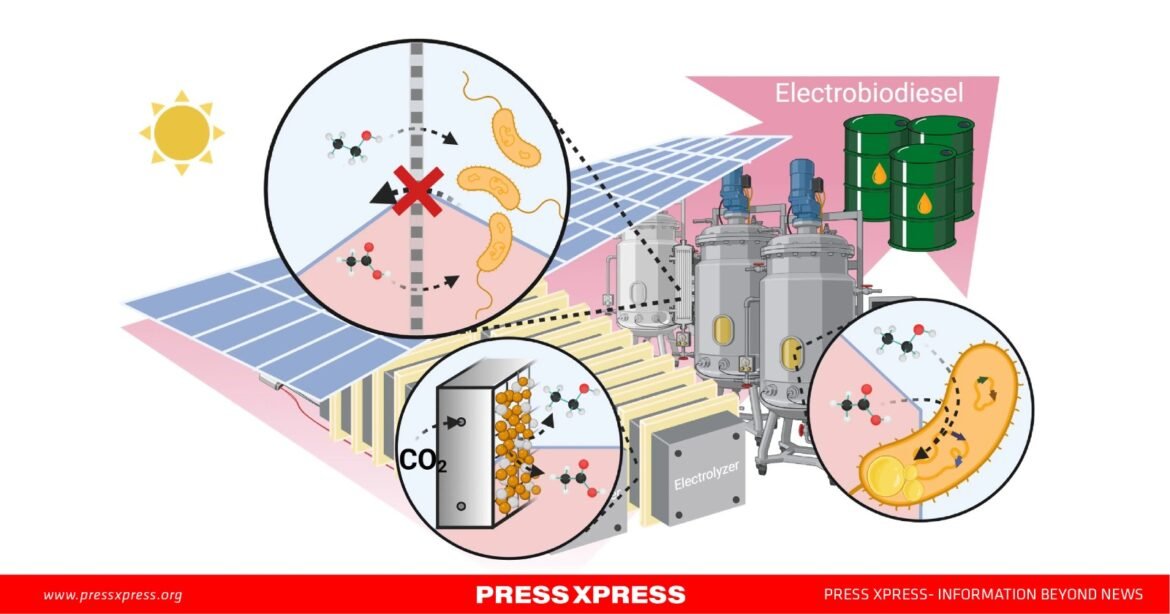In a groundbreaking effort to combat global carbon emissions, researchers from Washington University and the University of Missouri have developed a revolutionary process to create electro-biodiesel from carbon dioxide. This innovative method uses electrocatalysis to convert carbon dioxide into fuels like acetate and ethanol through advanced chemical reactions.
The process involves altering the electron configuration of carbon dioxide to transform it into energy-rich fuels. Remarkably, this method is 45 times more efficient than traditional soybean-based biodiesel production and requires 45 times less space, making it a game-changer in sustainable energy solutions.
Published in the scientific journal *Joule*, the research highlights the potential of electro-biodiesel to significantly reduce carbon pollution. Diesel-powered vehicles are among the largest contributors to global carbon emissions, and this new technology could provide a much-needed alternative.
As carbon emissions from vehicles continue to harm the environment, scientists believe this method could play a critical role in reducing pollution and promoting renewable energy. The development of electro-biodiesel marks a major step forward in the quest for greener, more efficient fuels to power the future sustainably.
Scientists Turn Carbon Dioxide into Eco-Friendly Electro-Biodiesel

261

